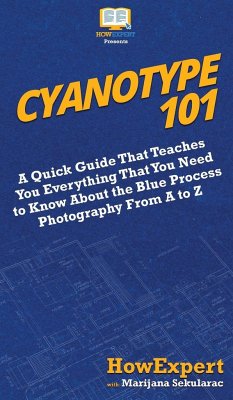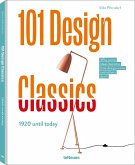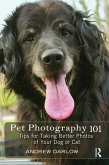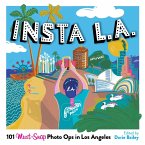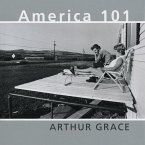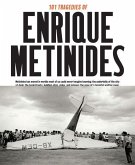It is easy to make a picture. Right? Think again. Of course, in today world, pictures are everywhere and tools for making them are available to everybody. This is a good thing, of course. That was in the inception of photography and still is one of the main goals of this medium; ability to record and remember for everybody. This book takes you to the time when photographs were not easy to make; time when in order to make a photograph, you should have a knowledge of chemistry, medicine, geology, optics, physics, astronomy. When photography was not the right, but luxury; when it was not done with the click in the split of second, but it was slow work by hand. Cyanotype, Dive into the Blue Process, is a book that speaks about, for a long time now commercially obsolete but beautiful photographic process, the Cyanotype. The book is not intended for scientific research, advanced or professional photographic artwork. The book is intended for the starters in alternative photo processes and professional that could use simplification of the process. It is the summary of the experiences in working with this alternative process. However, this does not mean that the workflow is not complicated and it should be followed step by step. This book will cover all those steps needed to get educated and proficient in creation process. Today you can purchase every chemical needed for the creation of the cyanotype already premixed, even already presentenced paper. In that way you just need to put the negative, or the object we want to make a photogram of, and just expose it to the light. In this book you will find not just the chemical needed to make the solutions for mixing the your own magic lights catching potion, but also the reasons to do so. The cyanotype, the simplest among alternative photographic processes is made with combination of two, easy to get, chemicals. They have to be mixed in proper order and amounts for formula to work. These instructions should be followed strictly; however there is always space to experiment. Once the chemicals are separately mixed, they are also mixed together, and they become light sensitive. Once you have a light sensitive emulsion, you can start your work. In this book, we describe step-by-step, tool-by-tool, how do you get to this step and what you could expect. Everything else is left to you, your intuition, interests and creativity. For us, it was very important to perceive our work, so we taught it would be for you too. After you are done with creating, it is important to save your work, that is, to archive and present it in the right way. At the end of the book, its last chapters, you can find the sub-chapters that will explain the process of archiving and presenting, such as: flattening you prints; you can learn how to protect it from moisture and too much sun; how to mat your own work, and couple of different ways of framing your print. And believe me, if we could do it you can do it too About the Expert Marijana is a photographer based in Podgorica, Montenegro. She is student of Economy, but also for several years now a proficient photographer interested in analog technologies and alternative printing processes. Two years ago, Marijana tried Cyanotype process for the first time, immediately fell in love with it and since then uses it to create beautiful photograms of everything. It was not easy; she was charmed by Anna Atkins' Book of British Algae, its beauty, process and history, and it was hard to match it. However, even limited by resources and even essentials, she is able to learn and create on everyday bases. Today, she is confident in her skill of creation, and feels the need to share her experience and knowledge with others! HowExpert publishes quick 'how to' guides on all topics from A to Z by everyday experts.
Hinweis: Dieser Artikel kann nur an eine deutsche Lieferadresse ausgeliefert werden.
Hinweis: Dieser Artikel kann nur an eine deutsche Lieferadresse ausgeliefert werden.

